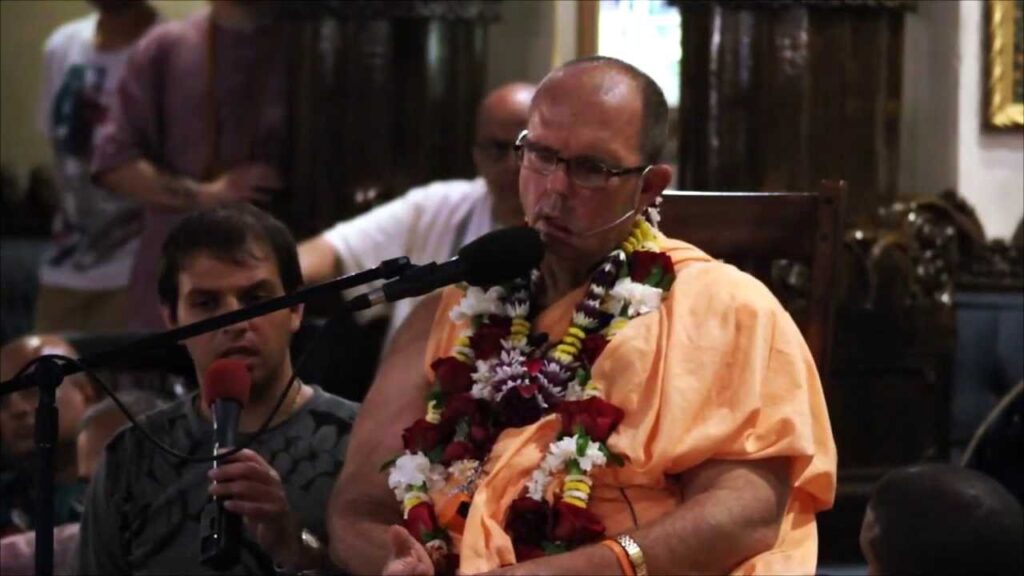h h jayapataka swami
śrīla jayapatākā navaka stotram
(Nine Purifying Verses Glorifying Śrīla Jayapatākā Svāmī Gurudeva)
Language – Sanskrit
Composed & Rendered by : Yaśodā Kumāra Dāsa
If you Like our Content, Kindly Donate us
PayPal – https://www.paypal.me/mantratrance
Patreon – https://www.patreon.com/mantratrance
BHIM UPI ID – yeshwanthks@ybl
Srila Jayapataka Swami Gurudeva Sahasranamavali
Śrīla Prabhupādā Pāda Sevaka Śrīla Jayapatākā Svāmī Aṣṭottara-Śata Nāmāvaliḥ
Check out our Playlist “SRILA PRABHUPADA”
Click here for more videos of SRIMAD BHAGAVATAM
Click the JOIN button to spread the Spiritual Bliss for the welfare of One and All
https://www.youtube.com/channel/UCC064J7xkO4hgAN1A4T-yjw/join
Subscribe our YouTube Channel & Stay Connected for more Peace bestowing Videos!!!
https://www.youtube.com/c/MantraTrance
Like us on Facebook @
https://www.facebook.com/MANTRATRANCE.YKD
Follow us on Twitter
Tweets by MantraTranceYKD
Mail us @ mantratrance108@gmail.com
Website – https://www.mantratrance.com
© Copyrights 2022 – MANTRA TRANCE
#jayapatakaswami
source
Steven J. Rosen, also known as Satyaraja Dasa (born 1955), is an American author. He is the founding editor of The Journal of Vaishnava Studies and an associate editor of Back to Godhead, the magazine of the Hare Krishna Movement. He authored more than 20 books on Vaishnavism and related subjects.including Black Lotus: The Spiritual Journey of an Urban Mystic (2007), which is the life story of Bhakti Tirtha Swami.
Steven J. Rosen has a strong view on vegetarianism and has written Diet for Transcendence: Vegetarianism and the World Religions (1997, previously published as Food for the Spirit) and Holy Cow: The Hare Krishna Contribution to Vegetarianism and Animal Rights (2004). In the former volume, he systematically explains the practice of vegetarianism in various religious traditions, such as Christianity, Islam, Buddhism, Hinduism and Judaism, with special attention to the philosophical schools of India. In the latter, citing the devotee-scholar Bhaktivinoda Thakur (1838–1914) and the Hindu savant Sivaya Subramuniyaswami (1927–2001), he looks at early Vedic tradition, animal sacrifices, and the innovative contributions of the Hare Krishna movement.



